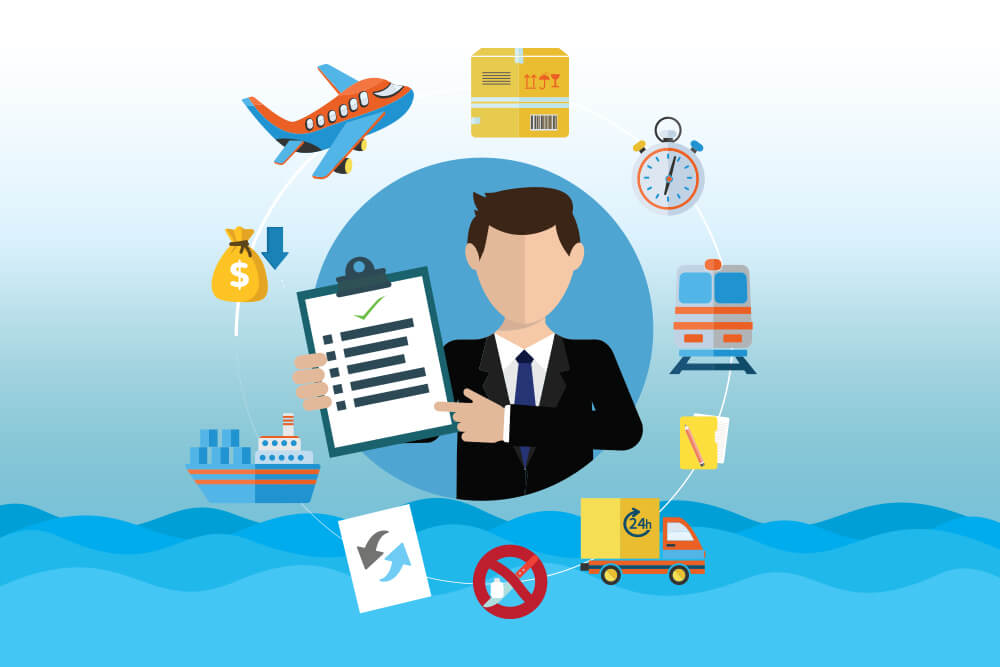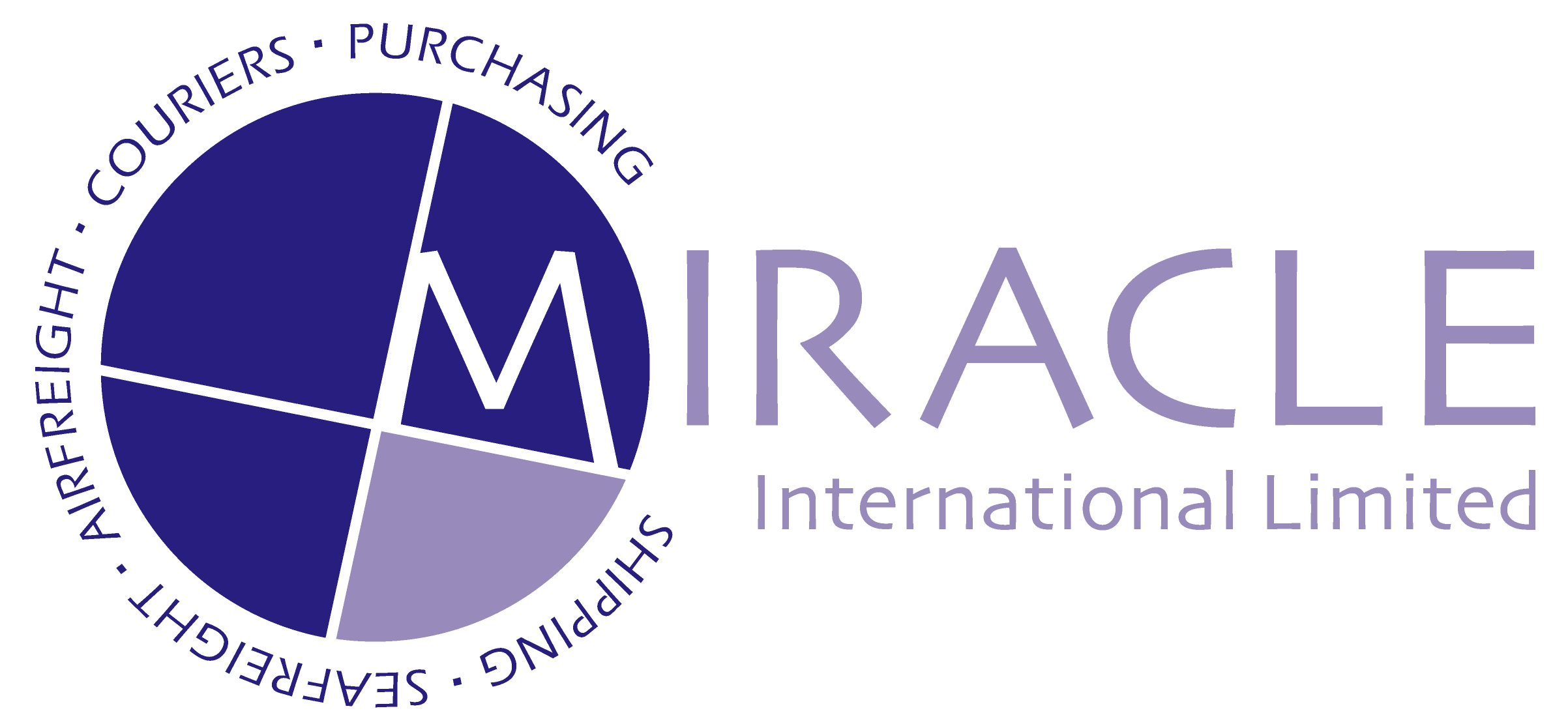
12 Nov What’s the Use of a Freight Forwarder? – Why you should use Miracle International to help ship your goods
What’s the Use of a Freight Forwarder?
If you’ve ever shipped goods internationally, you’ve likely heard the term freight forwarder. But what exactly does a freight forwarder do, and why might you need one for your business? In simple terms, a freight forwarder acts as an intermediary between you (the shipper) and the various carriers and service providers that handle the logistics of transporting your goods from point A to point B. They manage the complexities of international shipping, ensuring that your goods reach their destination efficiently and in compliance with all regulations.
Confused? Contact us today by emailing ops@miracle-international.co.uk or call on 01753 571900
In this guide, we’ll explore the role of a freight forwarder, how they can help streamline your shipping process, and why they might be a crucial partner for your business.
What is a Freight Forwarder?
A freight forwarder is a company or individual who arranges the shipment of goods on behalf of importers or exporters. While freight forwarders don’t actually transport the goods themselves, they coordinate every aspect of the shipping process, from booking cargo space to ensuring timely delivery. They work with a network of carriers, customs brokers, and warehouses to ensure that goods are delivered safely and efficiently.
Freight forwarders typically handle the following tasks:
- Arranging Transportation: They book the appropriate carriers (ocean, air, truck, rail, etc.) based on the nature of your goods, the destination, and your budget.
- Managing Documentation: Freight forwarders prepare and manage essential shipping documents, such as the Bill of Lading, commercial invoices, and customs paperwork.
- Customs Clearance: They ensure that your goods meet all regulatory requirements for both export and import, helping to clear customs efficiently.
- Warehousing and Distribution: Freight forwarders may also arrange for storage and distribution of goods if needed.
- Insurance: They can advise on or arrange cargo insurance to protect your goods during transit.
Why Use a Freight Forwarder?
Now that you know what a freight forwarder does, let’s look at why you might want to hire one for your business.
1. Expertise in International Shipping
International shipping can be complex, with a multitude of regulations, customs requirements, and documentation involved. Freight forwarders are experts in navigating these complexities. Whether it’s choosing the right carrier, handling customs clearance, or managing time-sensitive shipments, freight forwarders bring valuable expertise to the table, helping you avoid costly mistakes.
2. Time and Cost Savings
By working with a freight forwarder, you save time and effort in managing the logistics of shipping. They already have established relationships with carriers, which means they can often negotiate better rates and secure faster delivery times. This can be especially beneficial for businesses that are new to international shipping or have limited resources to dedicate to logistics.
Additionally, freight forwarders can advise on the most cost-effective shipping methods and help optimize your supply chain, potentially reducing overall shipping costs.
3. Streamlined Customs Clearance
One of the trickiest parts of international shipping is clearing customs. Every country has its own rules and regulations regarding the import and export of goods. A freight forwarder is familiar with these regulations and ensures that your shipments comply with all necessary customs requirements, minimizing the risk of delays or fines.
Freight forwarders also help prepare the correct documentation for customs clearance, such as commercial invoices, export declarations, and import permits, ensuring your goods are processed smoothly at the border.
4. Flexibility with Shipping Methods
Freight forwarders have access to a variety of carriers and transportation options. They can help you choose the best shipping method for your needs, whether it’s by air, sea, road, or rail. This flexibility allows you to adapt your shipping strategy based on factors such as urgency, cost, and the nature of your goods.
For example, if you need to move goods quickly, air freight might be the best option, while sea freight may be more cost-effective for larger shipments with longer transit times. A freight forwarder will evaluate your needs and recommend the most suitable solution.
5. Consolidation and Groupage Services
For smaller shipments, a freight forwarder can often consolidate your cargo with other shipments to fill a container, a service known as groupage. This helps reduce costs, especially if you’re shipping less than a full container load (LCL) or less than truckload (LTL). By consolidating multiple shipments, freight forwarders can offer more affordable pricing and ensure your goods are shipped as efficiently as possible.
6. Risk Management and Insurance
While international shipping is relatively safe, accidents can happen. Freight forwarders can advise you on the best ways to protect your goods by arranging cargo insurance. They can assess the risks involved in your shipment and offer insurance options to ensure your cargo is covered in case of damage, theft, or delays.
Freight forwarders also help manage risks associated with the logistics process, such as delays, lost goods, or transport disruptions, providing peace of mind and reducing potential headaches.
When Should You Consider Using a Freight Forwarder?
You should consider working with a freight forwarder when:
- You’re Shipping Internationally: If you’re shipping goods across borders, a freight forwarder can simplify the process and ensure compliance with local laws and regulations.
- You’re New to Importing or Exporting: If your business is new to international trade, a freight forwarder can guide you through the entire process, from selecting the best shipping methods to handling customs clearance.
- You Have Complex Shipments: For businesses that ship large, delicate, or time-sensitive cargo, a freight forwarder can coordinate the most efficient and secure shipping arrangements.
- You Want to Focus on Your Business: Shipping, customs, and logistics can be time-consuming. A freight forwarder handles all these details, allowing you to focus on growing your business instead of managing logistics.
Feel like you are ready to get a quote for your shipment? Get in touch today.
Choosing the Right Freight Forwarder
When selecting a freight forwarder, it’s important to consider a few key factors:
- Experience and Specialization: Look for a forwarder with experience in your industry or product type, as they’ll be better equipped to handle any specific challenges related to your goods.
- Global Network: A good freight forwarder will have a wide network of carriers, partners, and agents to ensure smooth shipping worldwide.
- Customer Service: Strong communication is key when working with a freight forwarder. Choose one that is responsive, transparent, and proactive in solving any issues that arise.
- Cost: While cost shouldn’t be the only factor, it’s important to find a forwarder who offers competitive rates without sacrificing service quality.
Conclusion
Freight forwarders play a crucial role in simplifying the often-complex process of international shipping. Whether you’re an importer or exporter, working with a reliable freight forwarder can help you save time, reduce costs, and ensure the smooth and timely delivery of your goods. From managing documentation to coordinating customs clearance and shipping logistics, they’re an invaluable partner for any business looking to expand its reach across borders.
If you’re new to international shipping or need help optimizing your supply chain, partnering with a freight forwarder could be the smartest decision you make. Their expertise can help ensure your goods get to their destination safely and efficiently, without the hassle of navigating the complexities of international logistics on your own.
